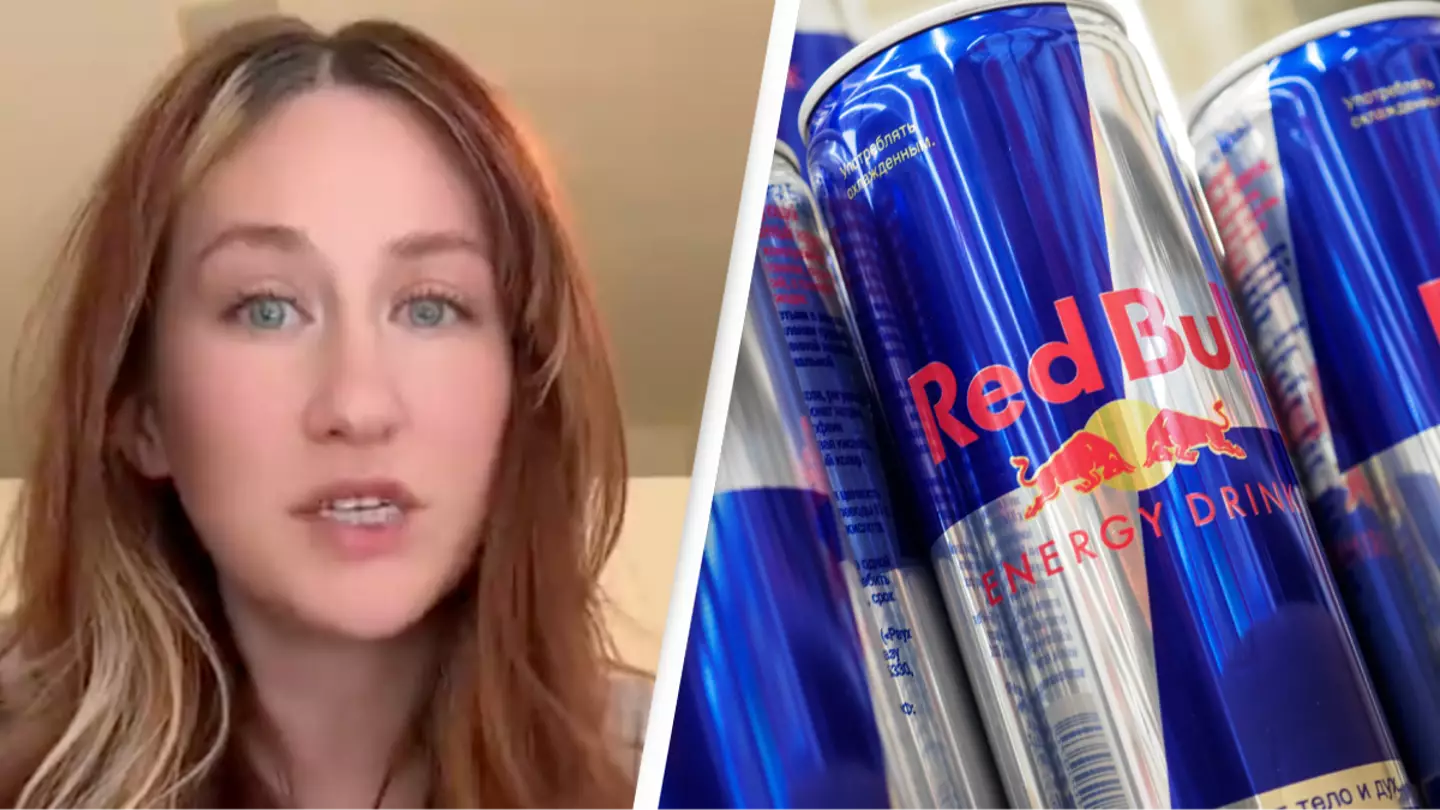A TikToker has recently shared an alarming warning about the consumption of energy drinks following a serious health scare involving her husband.
Energy drinks are often used for a quick boost during late-night study sessions or before a night out, but there are numerous cautionary tales about their potential dangers when consumed excessively.
A TikToker has shared her urgent warning on this matter.

Meagan, known as @ladyshreve on TikTok, detailed an incident from six months ago involving her and her husband’s health scare.
“This is the story about how I’ve become the obnoxious person that tells you that energy drinks are dangerous,” she stated.
She described being awakened one night in January by her husband, who was feeling unwell.
“His heart was racing, his hands and feet were going numb and he just didn’t feel right,” she explained.
Initially suspecting a panic attack, Meagan decided to wait it out. However, her husband insisted on calling 911.
Due to the snow, Meagan opted to warm up the car to drive him to the hospital. During this brief period, her husband’s condition worsened.
@ladyshreve Please. Put. Down. The. Energy. Drinks. #energydrinks #hearthealth #trauma
In the emergency room, Meagan’s husband experienced ‘chest pains,’ a racing heart, and felt like he was about to pass out.
“In a matter of less than a minute, he was telling the woman ‘I think I’m going to go down’,” she recounted.
His heart stopped, alarms sounded, and a nurse initiated chest compressions.
“It was all fast, it was all scary,” Meagan remembered, mentioning that her husband was ‘choking’ and ‘vomiting’ while she waited in a side room.
Upon being reunited, Meagan learned that her husband had ‘broken ribs’ from the resuscitation efforts.
After being discharged, he was referred to a cardiologist and monitored for five to six weeks, yet there were no clear answers about the cause.
Doctors concluded that “there was essentially nothing wrong with him” and attributed it to dehydration and excessive energy drink consumption.
In a follow-up video, Meagan shared: “The emergency room doctors said they were attributing it to the Red Bull.”
@ladyshreve Replying to @okay_913 its crazy to me that someone can share something vulnerable and they become the bad guy. Could I have made better split second decisions, sure. But im far from cold hearted and that night absolutely devastated me. #energydrinks #hearthealth #trauma @Meagan ✨
She also mentioned that when cardiologists couldn’t provide definitive answers, they, too, pointed to “the Red Bull.”
Both sets of doctors suggested that the energy drinks were likely the cause.
Meagan urges others who consume multiple energy drinks daily to reconsider their habits and understand the potential impacts on themselves and their loved ones.
“If you’re someone who’s downing two, three, four energy drinks a day, I would highly recommend you to stop,” she advised.
Red Bull’s website states: “Health authorities across the world have concluded that Red Bull Energy Drink is safe to consume.”
“One 250 ml can of Red Bull Energy Drink contains 80 mg of caffeine, the same amount as in a cup of coffee. The European Food Safety Authority (EFSA) concluded in 2009 that the ingredients of energy drinks are of no concern.

“In 2015 and 2017, the EFSA confirmed the safety of energy drinks and their ingredients. All ingredients of Red Bull products are labelled on the can.”
Regarding safe consumption levels, it continues: “One 250 ml can of Red Bull Energy Drink contains 80 mg of caffeine, about the same amount as in a cup of coffee. The consumption of Red Bull Energy Drink should conform to a person’s intake of caffeine.”
“Many authorities around the world have looked at the effects of caffeine. The European Food Safety Authority (EFSA) concluded in its scientific opinion on the safety of caffeine (2015) that caffeine intake of up to 400 mg per day (five 250 ml cans or five cups of coffee) does not raise safety concerns for the general healthy adult population. This is in line with similar findings from the US Food and Drug Administration (US FDA) and Health Canada.”

